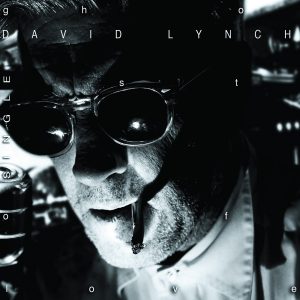In the late 1990s and into the early part of this still-young century, internet video capabilities like Real Video and Quicktime were expanding, lending credence to the early prophecy that someday soon, anyone would be able to have their own television channel. After the critical success of Mulholland Drive, director David Lynch doubled down on the burgeoning medium, funneling virtually all of his time into personally animating, filming, and scoring content for his eponymous subscription website. It was fertile and limitless ground for a boundlessly creative spirit like Lynch, allowing him to return to the days of his experimental film roots, where it was actually possible for him to have his hands on every element of the process.
It was out of this newfound digital freedom that the early seeds of Inland Empire were born, evolving and fissuring from an internet-bound experiment itself into something much more expansive. The film collated a variety of ideas and working methods that the recent web paradigm had nurtured in Lynch — one of which was an increased frequency of his own solo music productions. Having finished constructing his own personal recording studio in 1998, he was no longer tethered to the scheduling and high premiums of rented studio time, and was free to accelerate his musical experimentation without constraint.
A direct result of this was a unique shift in Lynch’s musical trajectory, a shift that would eventually bear multiple albums and even a short film featuring a lounge-crooning monkey. In early 2005, Lynch would record a blues instrumental and, instead of getting someone else to sing on the song, he would sing, via a formant and pitch-altering piece of equipment known as the Boss VT-1. It was because of the animated series Dumbland that the director had discovered the device that would enable him to be what he called “any character he needed.”
With the song “Ghost of Love,” Lynch began experimenting with bringing those “characters” into his own musical compositions. In true Lynch fashion, it’s difficult to know which inspired which: did “Ghost of Love” birth a scene in Inland Empire, or did the film’s ideas actually birth the song? Just as “In Heaven” had served to encapsulate Eraserhead so many years before, so too did “Ghost of Love” manage to encapsulate Inland Empire, allowing its listener to close their eyes and immediately channel the film’s images and mood onto the screen of their mind.
Now, in celebration of Inland Empire‘s 2022 theatrical re-release, “Ghost of Love” is being released for the first time ever on vinyl, backed by the B-side “Imaginary Girl.” Both tunes are signature cinematic Lynchian classics that feature the auteur on both guitar and vocals, accompanied by his long-time collaborator and Sacred Bones staple Dean Hurley on bass. To order the release, click here.

